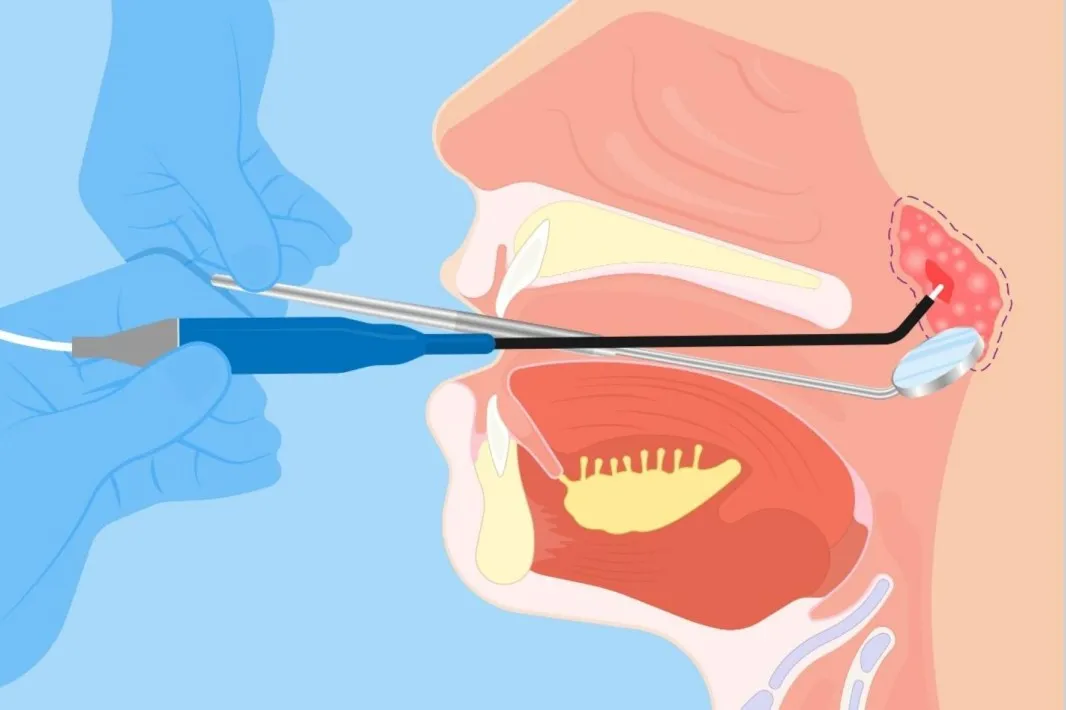As flu season rages and recurring infections strain children’s adenoids, many parents consider winter break for surgery. Here’s your essential guide:
 Q1: What Symptoms Demand Attention? What Tests Are Needed?
Key Signs to Watch
Q1: What Symptoms Demand Attention? What Tests Are Needed?
Key Signs to Watch:
Adenoid facies: High-arched palate, recessed jaw, flattened nose, elongated face.
Sleep Issues: Mouth breathing, snoring, night grinding, bedwetting.
Speech Problems: Nasal tone, slurred pronunciation (e.g., difficulty with "s" or "sh" sounds).
Other Symptoms: Chronic nasal congestion, cough, nosebleeds.
Diagnostic Steps:
ENT Exam: Visual inspection and nasal endoscopy.
Imaging: CBCT (3D imaging) for structural assessment.
Sleep Study: Detects apnea or hypoxia in severe cases.
Note:
For children under 2, visit pediatric ENT departments at tertiary hospitals.
Postpone tests during active infections to avoid skewed results.
Q2: When Is the Best Age for Surgery?
Act Before Age 6:
Adenoids peak at
6–7 years. Delaying treatment risks irreversible harm:
Stunted growth
Cognitive delays
Dental/jaw deformities
Surgery Criteria:
Failed medication or recurrent infections.
Confirmed adenoid/ tonsil hypertrophy with functional impact.
Q3: What Are the Surgical Indications?
Surgery depends on
functional impact, not size or age alone.
Consider Surgery If:
Chronic Sinusitis: Blocked nasal drainage, persistent postnasal drip.
Hearing Loss: Recurrent ear infections or fluid buildup.
Adenoid Facies: Visible facial bone changes.
Severe Sleep Issues: Apnea, hypoxia, labored breathing.
Speech Delays: Slurred speech due to jaw misalignment.
Dental Malocclusion: Requires orthodontic intervention.
Q4: Will Adenoids Regrow? How to Prevent Recurrence?
Recurrence Risks:
Chronic nasal inflammation or allergies.
Environmental triggers (pollution, allergens).
Poor diet (spicy/irritating foods).
Post-Op Care:
Prevent Infections: Boost immunity, avoid sick contacts.
Allergy Control: Minimize exposure to dust/pollen.
Follow-Ups: Regular ENT checkups for early detection.
Key Fact: No surgery guarantees 100% non-recurrence, but proactive care slashes risks.
Final Advice:
Early Intervention: Treat before age 6 to maximize reversibility.
Trust Specialists: Follow tailored medical plans.
Post-Surgery Vigilance: Healthy habits are lifelong shields.
Empower your child’s health—choose wisely this winter break!
